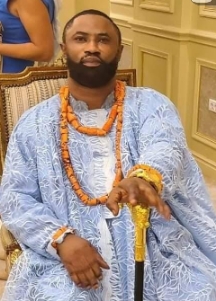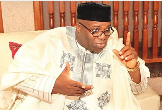
Ode-Idahosa wants government to review policy on Hausa, Igbo, Yoruba in schools

CITIZENS COMPASS—The Secretary-General, Nigerians in Diaspora Organisation (NIDO) African Continental, Sir JP Hamzaosa Ode-Idahosa, on Wednesday, appealed to the Honorable Minister of Education, Dr. Maruf Tunji Alausa, to review its current mandatory policy of studying Hausa, Igbo and Yoruba languages in schools.
With the new policy, Nigerian students are mandated to study one of the languages from the primary schools.
This according to the Minister of Education, Dr. Maruf Tunji Alausa, was by the National Policy on Education to promote national unity and cultural cohesion.
The policy stated that every child should learn one of the three major languages.
The Minister recently made the announcement for onward implementation.
However, in a statement on Wednesday, Ode-Idahosa appealed to the government to review the policy saying that Nigeria with over 300 indigenous languages should not major on three only as stated by the policy.
He said, “I wish to call on the Honorable Minister of Education, Dr. Maruf Tunji Alausa, to review the current policy of adopting only three (3) languages in a multilingual nation such as Nigeria.
“Nigeria is a country blessed with over 300–500 indigenous languages. Our leadership must consistently promote policies that unite us rather than those that risk creating unrest or distrust in our society. Truly, our greatest strength lies in our diversity.
“I therefore urge the Honorable Minister to look inward and ensure that policies in the education sector reflect fairness, inclusiveness, and unity.
Lessons from other nations
“Many multicultural nations have faced similar questions.
South Africa recognizes 11 official languages, ensuring that no group feels erased.
“India, with its linguistic complexity, allows states to promote their regional languages while still maintaining Hindi and English for broader communication.
“Switzerland balances four national languages — German, French, Italian, and Romansh — and thrives on this inclusiveness.
“Nigeria, with her size and heritage, can also design a model that respects every community while fostering national cohesion.
Why language matters
“Language is not just about words. It shapes the way people think, dream, and pass on values to their children. To deny a child the right to learn in his or her mother tongue is to deny that child a vital connection to their heritage. Studies by UNESCO have consistently shown that children learn best when taught in their first language. Beyond learning outcomes, inclusive language policies prevent alienation and strengthen the emotional bond between citizens and their country.
“If we continue to favor only a few, resentment and distrust may deepen. But if we embrace all, unity will naturally flourish.
National Language Development Fund
“Establish a dedicated fund to support language preservation, teacher training, and the production of educational materials in indigenous languages.
Promotion of unity through diversity
Organize inter-state language and cultural exchange programs so that Nigerian children grow up respecting and appreciating not only their own mother tongue but also the tongues of their fellow citizens
Proposed solution:
“Each state should be encouraged to teach and promote its indigenous language(s) within its region. Such a framework will be embraced by all, rather than creating feelings of marginalization among certain groups.
“It is my humble advice that we move forward with policies that recognize our linguistic diversity as a national asset, and ensure that education remains a tool for integration, peace, and collective progress.”






